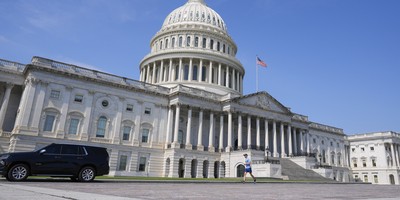One of the many mandates of the Energy Policy Act of 2005 calls for oil companies to increase the amount of ethanol mixed with gasoline. President Bush said, during his 2006 State of the Union address, "America is addicted to oil, which is often imported from unstable parts of the world." Let's look at some of the "wonders" of ethanol as a replacement for gasoline.
Ethanol contains water that distillation cannot remove. As such, it can cause major damage to automobile engines not specifically designed to burn ethanol. The water content of ethanol also risks pipeline corrosion and thus must be shipped by truck, rail car or barge. These shipping methods are far more expensive than pipelines.
Ethanol is 20 to 30 percent less efficient than gasoline, making it more expensive per highway mile. It takes 450 pounds of corn to produce the ethanol to fill one SUV tank. That's enough corn to feed one person for a year. Plus, it takes more than one gallon of fossil fuel -- oil and natural gas -- to produce one gallon of ethanol. After all, corn must be grown, fertilized, harvested and trucked to ethanol producers -- all of which are fuel-using activities. And, it takes 1,700 gallons of water to produce one gallon of ethanol. On top of all this, if our total annual corn output were put to ethanol production, it would reduce gasoline consumption by 10 or 12 percent.
Ethanol is so costly that it wouldn't make it in a free market. That's why Congress has enacted major ethanol subsidies, about $1.05 to $1.38 a gallon, which is no less than a tax on consumers. In fact, there's a double tax -- one in the form of ethanol subsidies and another in the form of handouts to corn farmers to the tune of $9.5 billion in 2005 alone.
Recommended
There's something else wrong with this picture. If Congress and President Bush say we need less reliance on oil and greater use of renewable fuels, then why would Congress impose a stiff tariff, 54 cents a gallon, on ethanol from Brazil? Brazilian ethanol, by the way, is produced from sugar cane and is far more energy efficient, cleaner and cheaper to produce.
Ethanol production has driven up the prices of corn-fed livestock, such as beef, chicken and dairy products, and products made from corn, such as cereals. As a result of higher demand for corn, other grain prices, such as soybean and wheat, have risen dramatically. The fact that the U.S. is the world's largest grain producer and exporter means that the ethanol-induced higher grain prices will have a worldwide impact on food prices.
It's easy to understand how the public, looking for cheaper gasoline, can be taken in by the call for increased ethanol usage. But politicians, corn farmers and ethanol producers know they are running a cruel hoax on the American consumer. They are in it for the money. The top leader in the ethanol hoax is Archer Daniels Midland (ADM), the country's largest producer of ethanol. Ethanol producers and the farm lobby have pressured farm state congressmen into believing that it would be political suicide if they didn't support subsidized ethanol production. That's the stick. Campaign contributions play the role of the carrot.
The ethanol hoax is a good example of a problem economists refer to as narrow, well-defined benefits versus widely dispersed costs. It pays the ethanol lobby to organize and collect money to grease the palms of politicians willing to do their bidding because there's a large benefit for them -- higher wages and profits. The millions of gasoline consumers, who fund the benefits through higher fuel and food prices, as well as taxes, are relatively uninformed and have little clout. After all, who do you think a politician will invite into his congressional or White House office to have a heart-to-heart -- you or an Archer Daniels Midlands executive?























Join the conversation as a VIP Member